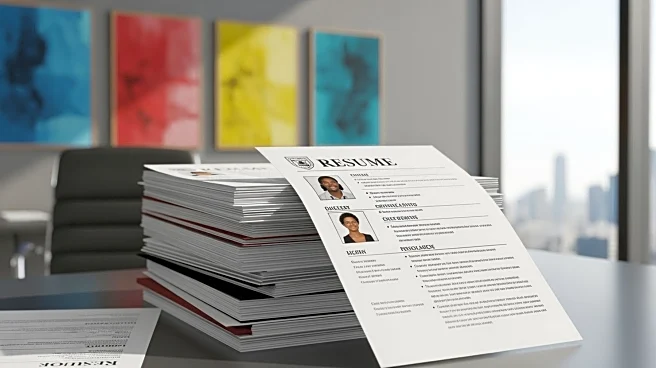What's Happening?
A new report from Diversity Council Australia (DCA) reveals that class bias remains a significant issue in employment practices, with 58% of HR and diversity practitioners indicating a preference for candidates
from elite universities. This bias persists despite a lack of evidence that graduates from prestigious institutions perform better in the workplace. The report highlights that such practices disadvantage workers from class-marginalized backgrounds, who are less likely to have attended elite universities. The findings challenge the notion of Australia as a class-free society, showing that social class continues to impact career opportunities and advancement. DCA CEO Catherine Hunter emphasizes the need for organizations to address class bias, especially amid rising cost-of-living pressures and skills shortages.
Why It's Important?
The report underscores the broader implications of class bias in employment, which can entrench disadvantage and limit access to professional networks and opportunities for class-marginalized individuals. This bias not only affects individual career trajectories but also risks overlooking valuable talent that could contribute to organizational innovation and customer service excellence. Addressing class bias is crucial for fostering inclusive work environments that enhance employee satisfaction and mental health. The findings suggest that organizations that fail to tackle class bias may miss out on the benefits of a diverse workforce, including increased innovation and job satisfaction.
What's Next?
DCA hopes the report will initiate a national conversation about class and workplace inclusion, encouraging organizations to build cultures where individuals from all class backgrounds can thrive. The report provides an evidence-based framework for employers to address class inequality and unlock overlooked talent. As organizations consider their diversity and inclusion strategies, there may be increased efforts to collect and utilize class-related data to drive meaningful change. The upcoming ATIA Beyond Borders conference may further explore these themes, highlighting the importance of inclusivity in the travel industry and beyond.
Beyond the Headlines
The report reveals that class remains one of the most overlooked areas of workplace diversity, with many organizations collecting limited class-related data and failing to use it to drive change. This oversight suggests a need for a more comprehensive approach to diversity that includes social class as a critical factor. The findings also highlight the cultural dimensions of class bias, with workers reporting changes in speech, dress, and presentation to fit in with higher-class environments. Addressing these cultural biases could lead to more authentic and inclusive workplaces.










